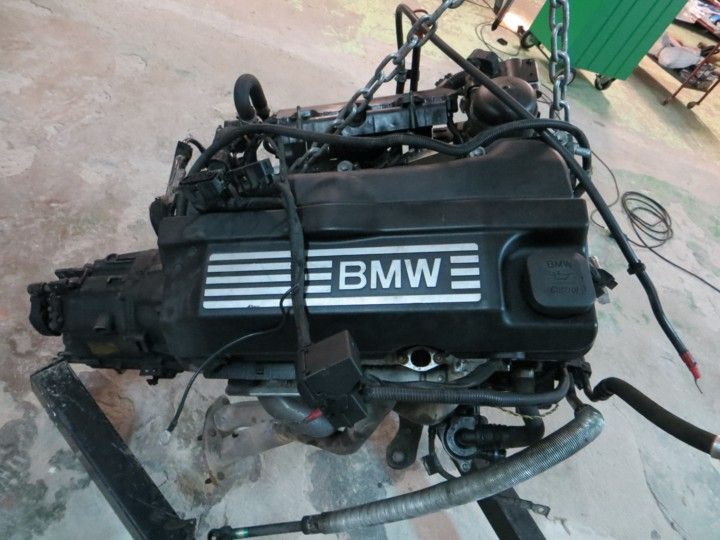BMW 318ti: A Timeless Compact with Ageless Appeal
BMW 318ti: A Timeless Compact with Ageless Appeal
Blog Article
Essential Factors To Consider for Choosing the most effective Engine for Your Demands
In the realm of picking the optimal engine to meet your demands, numerous crucial variables demand thorough consideration to make certain optimal efficiency and efficiency. From the nuanced equilibrium in between power and performance to the often-overlooked elements of upkeep and service demands, each element plays a critical duty in identifying one of the most suitable engine for your certain demands. As the complexity of engine technologies remains to develop, discerning one of the most fitting choice demands a deep understanding of the interaction between different factors to consider. By exploring the complex internet of factors that underpin this decision-making process, a more clear course arises towards choosing an engine that not just fulfills yet surpasses your assumptions.
Power and Efficiency
When examining engines for optimum efficiency, it is vital to prioritize both power outcome and effectiveness. Power outcome measures the ability of an engine to generate power, which straight affects its performance. A high power output is important for demanding jobs such as sturdy applications or high-speed needs. It makes sure that the engine can manage the workload effectively and efficiently. Power alone is not enough; effectiveness plays a considerable function in identifying the overall efficiency of an engine. Effectiveness refers to just how well the engine converts gas right into functional energy. A more reliable engine will certainly deliver far better mileage, reduced discharges, and reduced operating expense. Striking the ideal balance in between power output and performance is crucial to selecting an engine that fulfills your particular demands. It is crucial to think about factors such as the meant use the engine, ecological impact, and lasting cost effects when making this decision. By very carefully reviewing both power and performance, you can choose an engine that supplies optimal efficiency and meets your requirements properly.
Gas Efficiency and Economic Climate
Fuel efficiency refers to the engine's ability to transform gas into power with marginal waste, straight influencing operating expenses and environmental sustainability. Engines with higher fuel efficiency not just lower fuel expenses but additionally reduce carbon discharges, contributing to a greener procedure.

Compatibility and Application
Taking into consideration the fuel effectiveness and economic situation of an engine, the next vital aspect to address is its compatibility and application within particular functional contexts. Compatibility refers to how well the engine integrates with the total system or equipment it powers.
Various engines are designed for specific purposes, whether it be industrial equipment, aquatic vessels, autos, or power generators. Recognizing the desired application permits for the option of an engine that can supply the needed power you could try these out outcome, torque, and operational attributes.
Maintenance and Service Demands
Upkeep and solution requirements play a vital duty in guaranteeing the long life and optimal performance of an engine. Routine upkeep is necessary to avoid malfunctions, expand the lifespan of the engine, and maintain its efficiency. When selecting an engine, it is essential to consider the manufacturer's suggested maintenance routine and the accessibility of solution facilities or qualified specialists.
Elements such as the frequency of oil modifications, filter substitutes, and general assessments can dramatically influence the engine's performance. Some engines might call for more frequent servicing based upon their layout and use, while others may have longer intervals between maintenance checks. It is crucial to abide by these service demands to prevent pricey repairs and unforeseen downtime.

Price and Budget Factors To Consider
Spending plan restraints often play a significant duty in the decision-making process when choosing an engine for a specific application. When considering the expense and spending plan implications of choosing an engine, it is crucial to examine not only the preliminary purchase rate but likewise the lasting costs associated with upkeep, gas intake, and potential upgrades or repair work. It is essential to strike a balance between the upfront expense of the engine and its general lifecycle expenses to ensure that the chosen engine stays monetarily lasting throughout its check here functional life expectancy.
Variables such as gas reliability, durability, and effectiveness can straight impact the total expense of ownership of an engine. While a much more pricey engine might have higher in advance costs, it might possibly cause reduced upkeep and gas costs in time, hence supplying better value over time. In addition, taking great post to read into consideration the accessibility and cost of spare components, along with the simplicity of maintenance and solution, can aid stop unforeseen financial stress in the future. By meticulously reviewing these expense and spending plan factors to consider, you can make an enlightened choice that straightens with your economic restraints and operational demands.
Final Thought

Gas performance refers to the engine's ability to convert gas into power with very little waste, straight influencing operating expenses and ecological sustainability.Variables affecting gas performance include engine layout, burning efficiency, and general performance optimization. In addition, selecting the appropriate gas type and grade as suggested by the engine manufacturer can additionally boost effectiveness and lengthen engine lifespan.
Engines with good service features and easily available parts can lower upkeep costs and decrease the time the engine is out of operation - bmw 318ti. It is vital to strike a balance in between the ahead of time cost of the engine and its general lifecycle costs to guarantee that the chosen engine stays monetarily sustainable throughout its functional lifespan
Report this page